한국응용과학기술학회 논문 검색
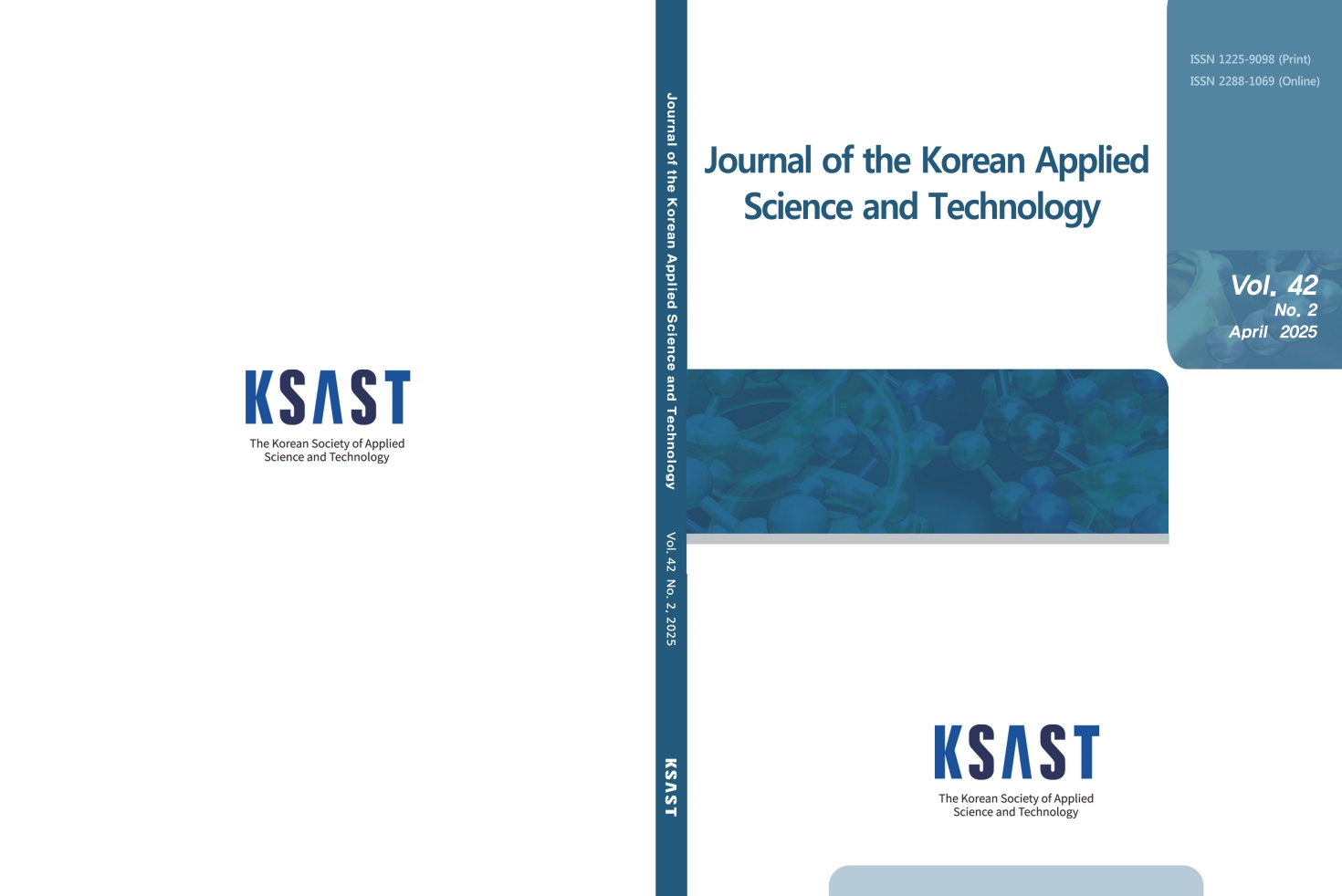
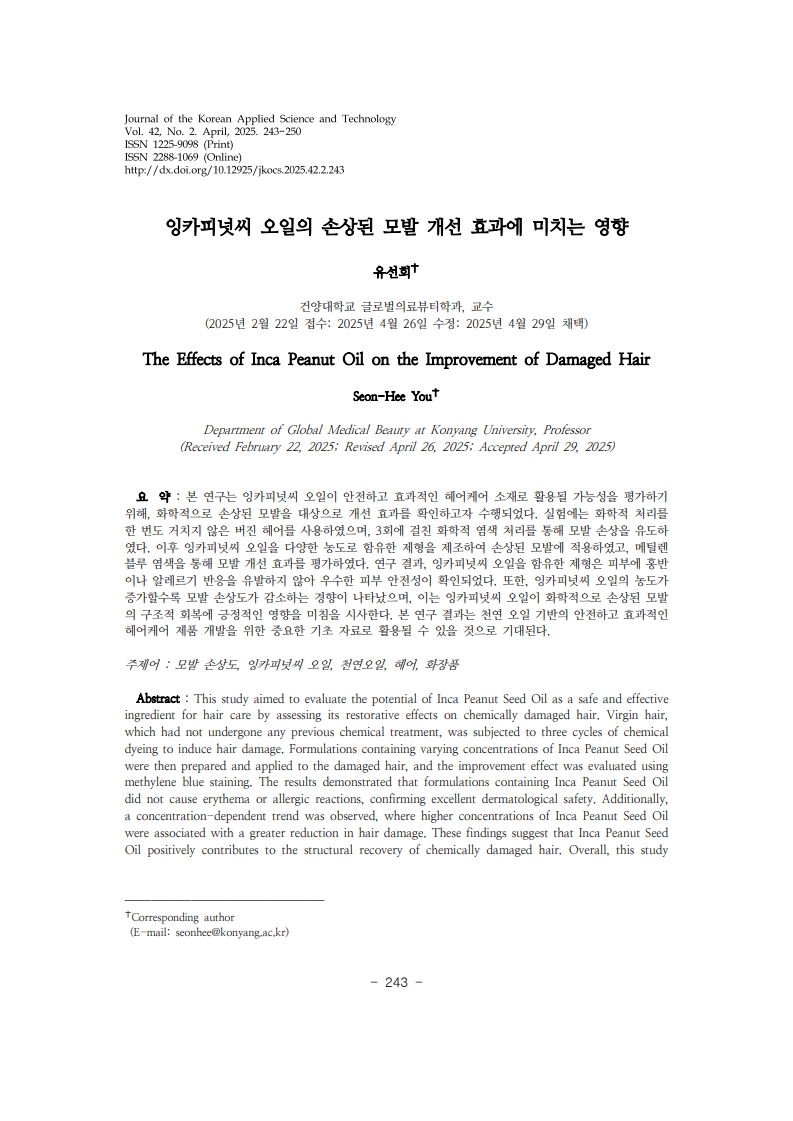

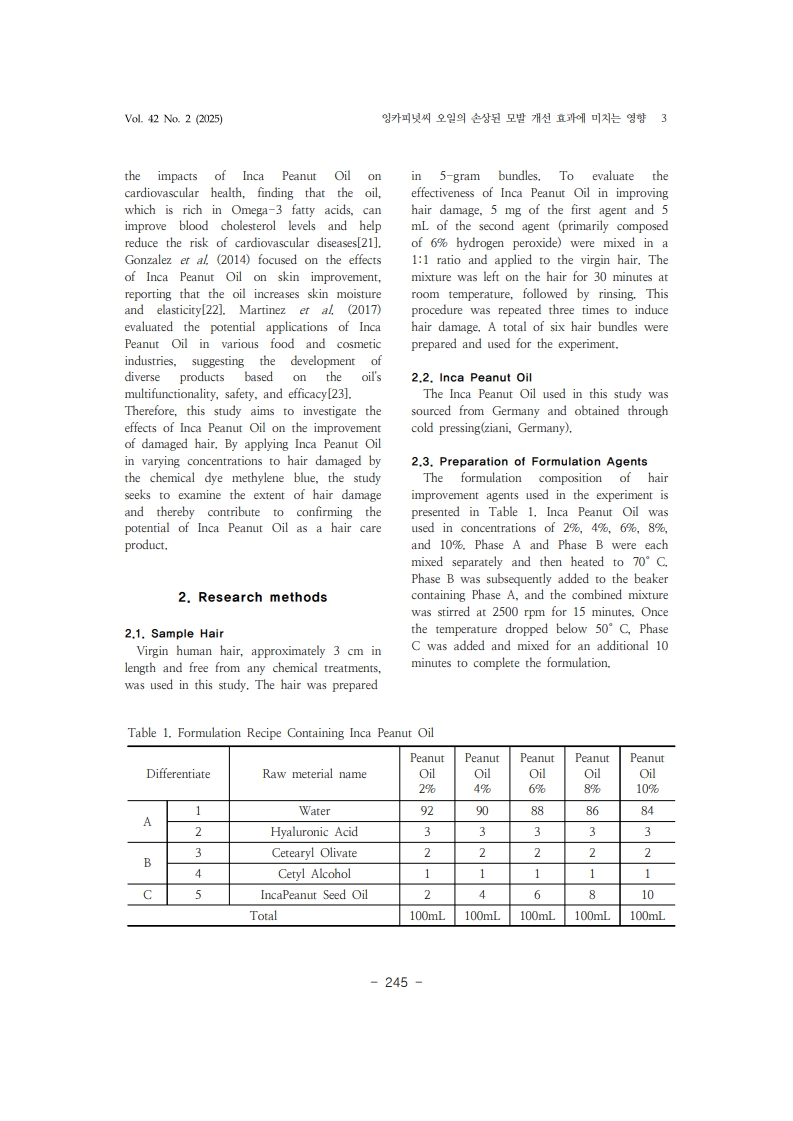
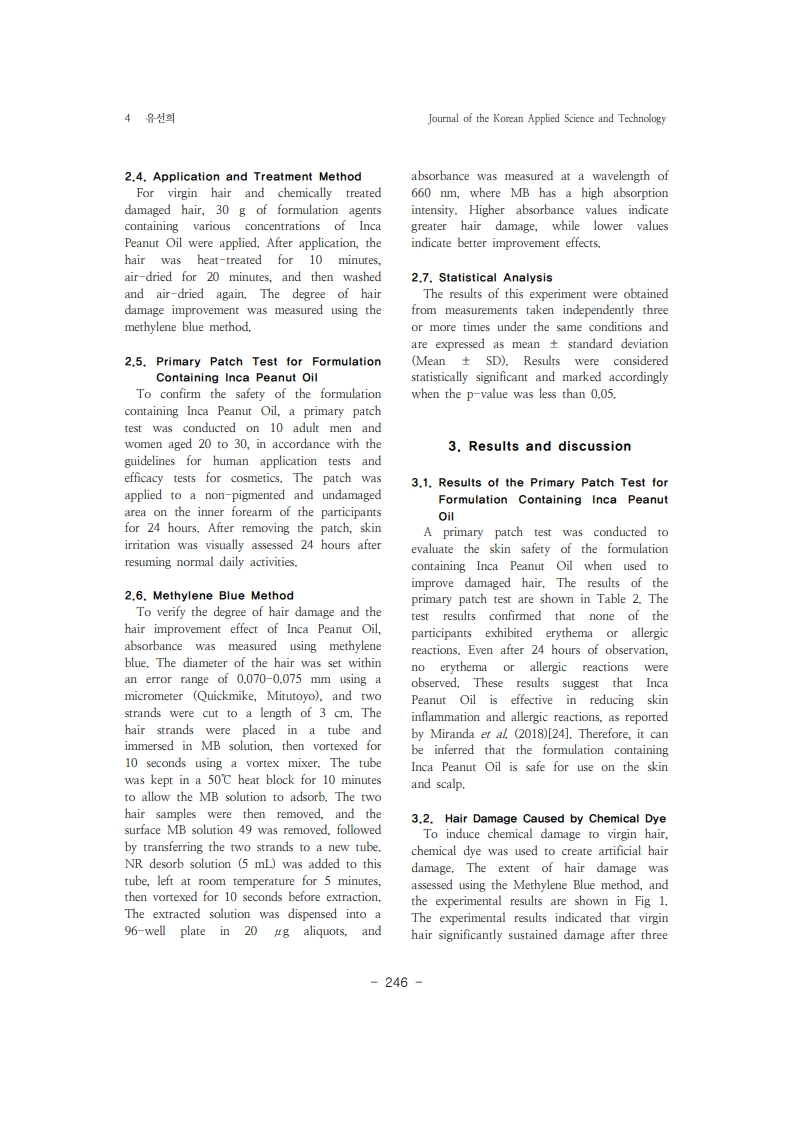
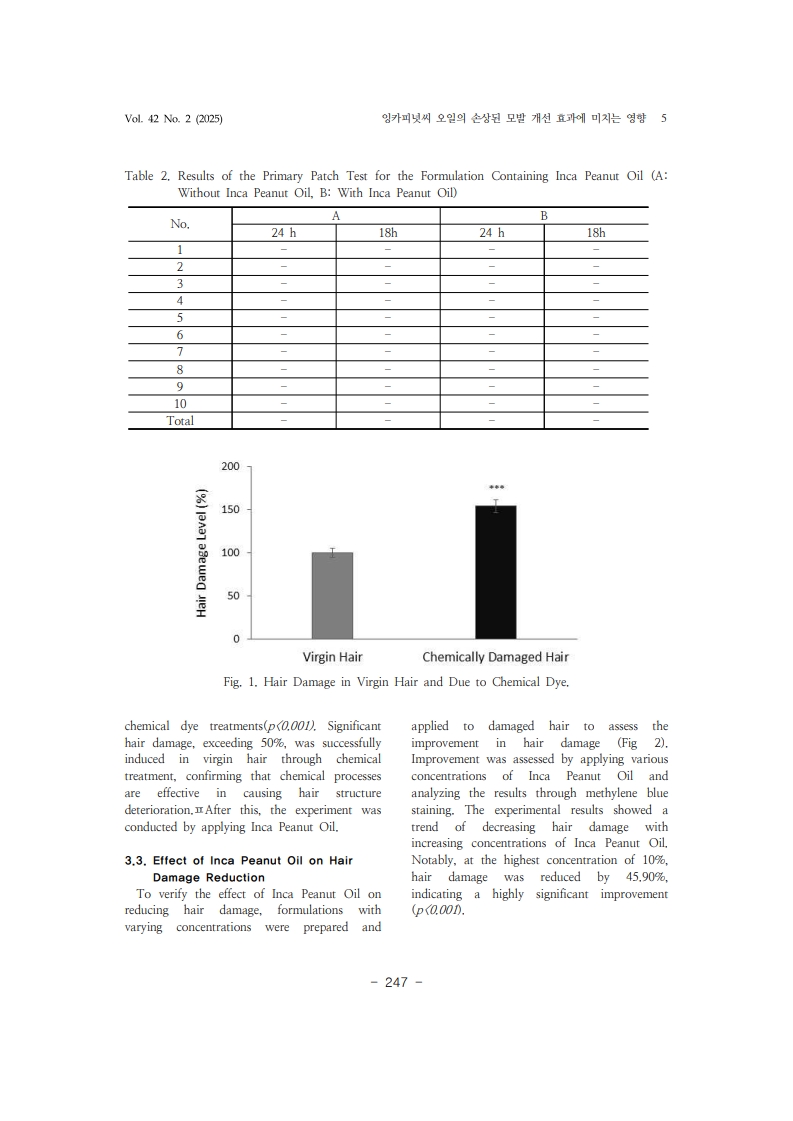
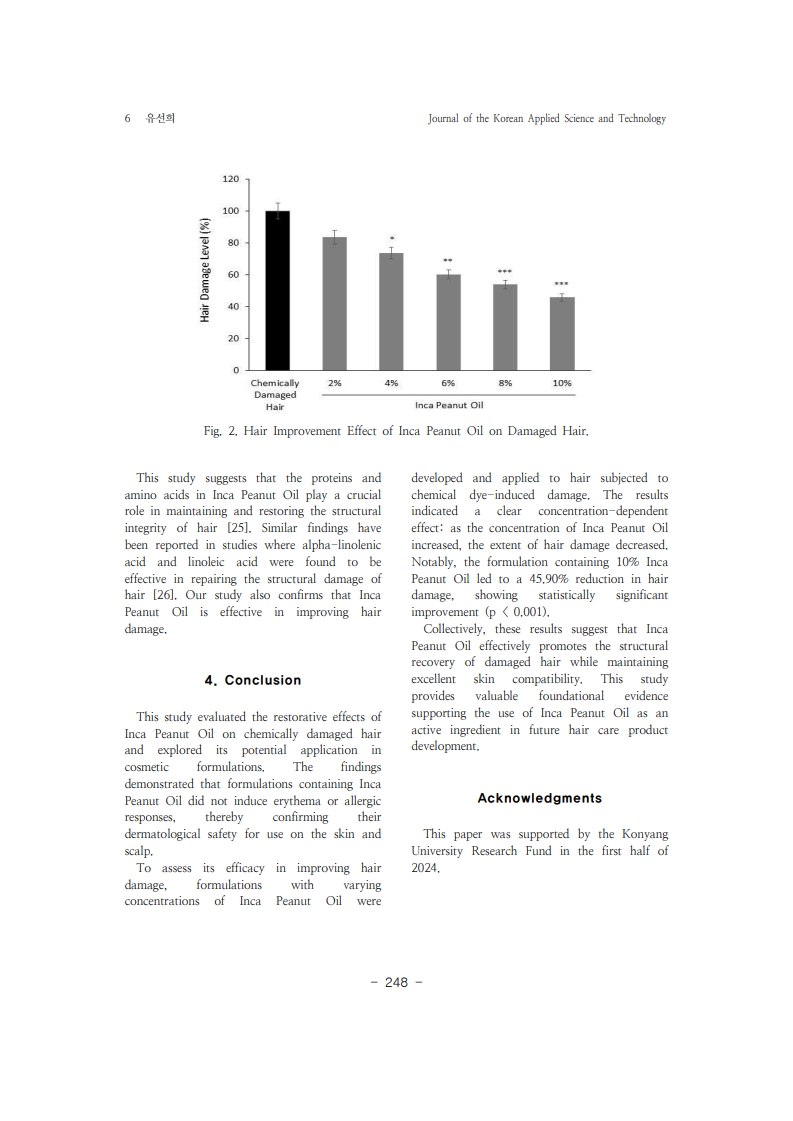
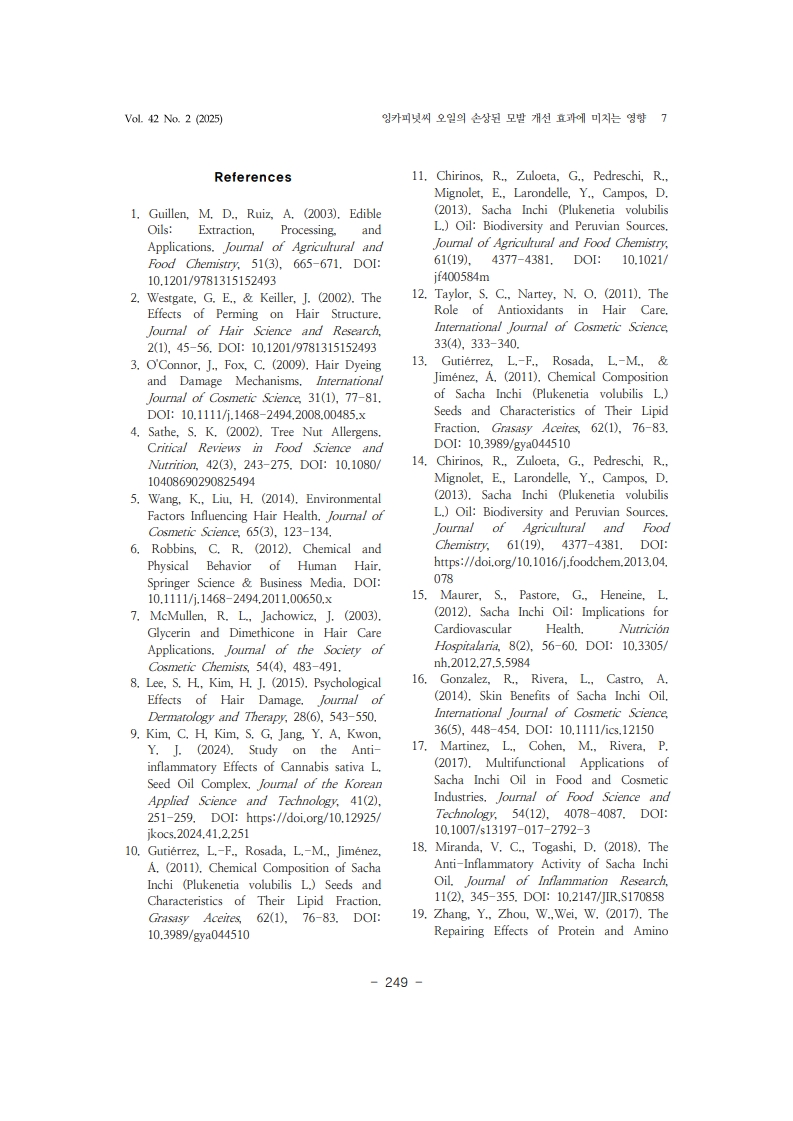
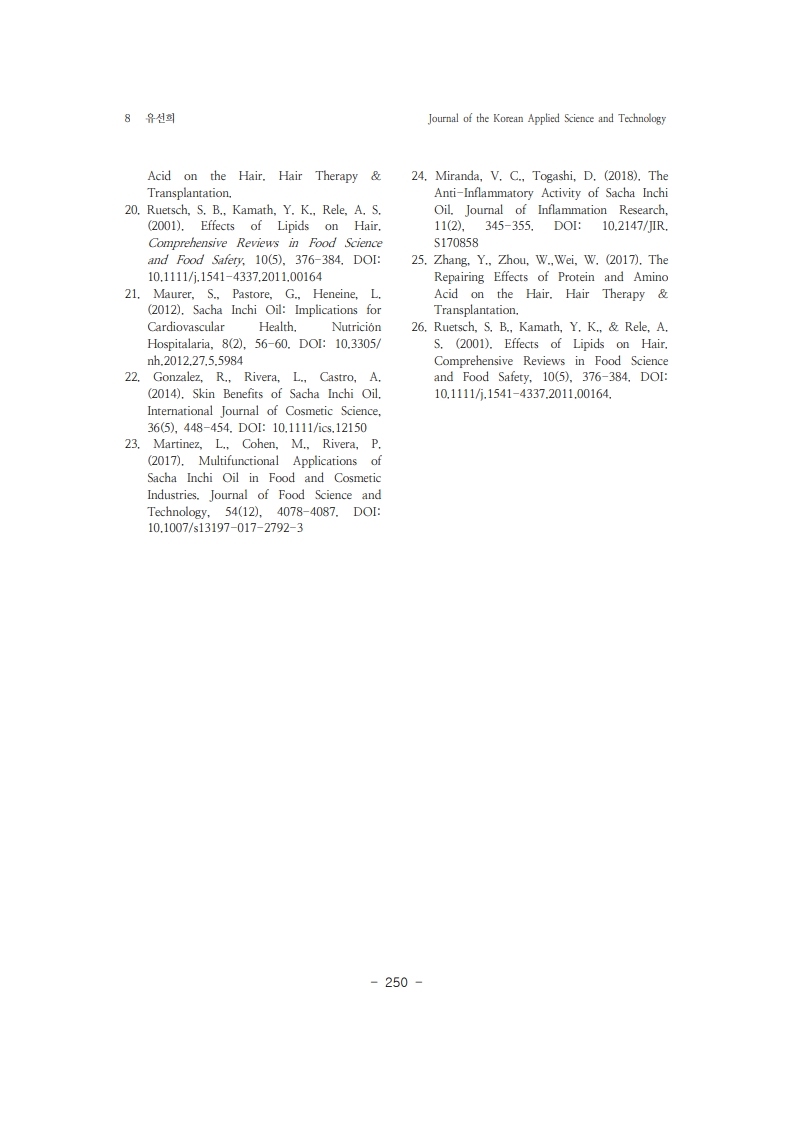
1. Guillen, M. D., Ruiz, A. (2003). Edible Oils: Extraction, Processing, andApplications. Journal of Agricultural and Food Chemistry, 51(3), 665-671.
DOI: https://doi.org/10.1201/9781315152493
2. Westgate, G. E., & Keiller, J. (2002). The Effects of Perming on Hair Structure.Journal of Hair Science and Research, 2(1), 45-56. DOI: https://doi.org/10.1201/9781315152493
3. O'Connor, J., Fox, C. (2009). Hair Dyeing and Damage Mechanisms. InternationalJournal of Cosmetic Science, 31(1), 77-81.
DOI: https://doi.org/10.1111/j.1468-2494.2008.00485.x
4. Sathe, S. K. (2002). Tree Nut Allergens. Critical Reviews in Food Science andNutrition, 42(3), 243-275. DOI: https://doi.org/10.1080/10408690290825494
5. Wang, K., Liu, H. (2014). Environmental Factors Influencing Hair Health. Journal of Cosmetic Science, 65(3), 123-134.
6. Robbins, C. R. (2012). Chemical and Physical Behavior of Human Hair.Springer Science & Business Media.
https://doi.org/10.1111/j.1468-2494.2011.00650.x
7. McMullen, R. L., Jachowicz, J. (2003). Glycerin and Dimethicone in Hair CareApplications. Journal of the Society of Cosmetic Chemists, 54(4), 483-491.
8. Lee, S. H., Kim, H. J. (2015). PsychologicalEffects of Hair Damage. Journal ofDermatology and Therapy, 28(6), 543-550.
9. Kim, C. H, Kim, S. G, Jang, Y. A, Kwon, Y. J. (2024). Study on the AntiinflammatoryEffects of Cannabis sativa L. Seed Oil Complex. Journal of the Korean Applied Science and Technology, 41(2),251-259. DOI: https://doi.org/10.12925/jkocs.2024.41.2.251
10. Gutiérrez, L.-F., Rosada, L.-M., Jiménez, Á. (2011). Chemical Composition of Sacha Inchi (Plukenetia volubilis L.) Seeds and Characteristics of Their Lipid Fraction.Grasasy Aceites, 62(1), 76-83. DOI: https://doi.org/10.3989/gya044510
11. Chirinos, R., Zuloeta, G., Pedreschi, R., Mignolet, E., Larondelle, Y., Campos, D.(2013). Sacha Inchi (Plukenetia volubilis L.) Oil: Biodiversity and Peruvian Sources.
Journal of Agricultural and Food Chemistry, 61(19), 4377-4381. DOI: https://doi.org/10.1021/jf400584m
12. Taylor, S. C., Nartey, N. O. (2011). The Role of Antioxidants in Hair Care.International Journal of Cosmetic Science, 33(4), 333-340.
13. Gutiérrez, L.-F., Rosada, L.-M., & Jiménez, Á. (2011). Chemical Compositionof Sacha Inchi (Plukenetia volubilis L.) Seeds and Characteristics of Their Lipid
Fraction. Grasasy Aceites, 62(1), 76-83. DOI: https://doi.org/10.3989/gya044510
14. Chirinos, R., Zuloeta, G., Pedreschi, R., Mignolet, E., Larondelle, Y., Campos, D.(2013). Sacha Inchi (Plukenetia volubilis L.) Oil: Biodiversity and Peruvian Sources.
Journal of Agricultural and Food Chemistry, 61(19), 4377-4381.https://doi.org/10.1016/j.foodchem.2013.04.078
15. Maurer, S., Pastore, G., Heneine, L. (2012). Sacha Inchi Oil: Implications forCardiovascular Health. Nutrición Hospitalaria, 8(2), 56-60. DOI: https://doi.org/10.3305/nh.2012.27.5.5984
16. Gonzalez, R., Rivera, L., Castro, A. (2014). Skin Benefits of Sacha Inchi Oil.International Journal of Cosmetic Science, 36(5), 448-454. DOI: https://doi.org/10.1111/ics.12150
17. Martinez, L., Cohen, M., Rivera, P. (2017). Multifunctional Applications ofSacha Inchi Oil in Food and Cosmetic Industries. Journal of Food Science and
Technology, 54(12), 4078-4087. DOI: https://doi.org/10.1007/s13197-017-2792-3
18. Miranda, V. C., Togashi, D. (2018). The Anti-Inflammatory Activity of Sacha Inchi Oil. Journal of Inflammation Research, 11(2), 345-355. DOI: https://doi.org/10.2147/JIR.S170858
19. Zhang, Y., Zhou, W.,Wei, W. (2017). The Repairing Effects of Protein and Amino Acid on the Hair. Hair Therapy & Transplantation.
20. Ruetsch, S. B., Kamath, Y. K., Rele, A. S. (2001). Effects of Lipids on Hair.Comprehensive Reviews in Food Science and Food Safety, 10(5), 376-384. DOI:
https://doi.org/10.1111/j.1541-4337.2011.00164
21. Maurer, S., Pastore, G., Heneine, L. (2012). Sacha Inchi Oil: Implications forCardiovascular Health. Nutrición Hospitalaria, 8(2), 56-60. DOI: https://doi.org/10.3305/nh.2012.27.5.5984
22. Gonzalez, R., Rivera, L., Castro, A. (2014). Skin Benefits of Sacha Inchi Oil.International Journal of Cosmetic Science, 36(5), 448-454. DOI: https://doi.org/10.1111/ics.12150
23. Martinez, L., Cohen, M., Rivera, P. (2017). Multifunctional Applications ofSacha Inchi Oil in Food and Cosmetic Industries. Journal of Food Science and
Technology, 54(12), 4078-4087. DOI: https://doi.org/10.1007/s13197-017-2792-3
24. Miranda, V. C., Togashi, D. (2018). The Anti-Inflammatory Activity of Sacha Inchi Oil. Journal of Inflammation Research, 11(2), 345-355. DOI: https://doi.org/10.2147/JIR.S170858
25. Zhang, Y., Zhou, W.,Wei, W. (2017). The Repairing Effects of Protein and Amino Acid on the Hair. Hair Therapy & Transplantation.
26. Ruetsch, S. B., Kamath, Y. K., & Rele, A. S. (2001). Effects of Lipids on Hair.Comprehensive Reviews in Food Science and Food Safety, 10(5), 376-384. DOI:
https://doi.org/10.1111/j.1541-4337.2011.00164.

